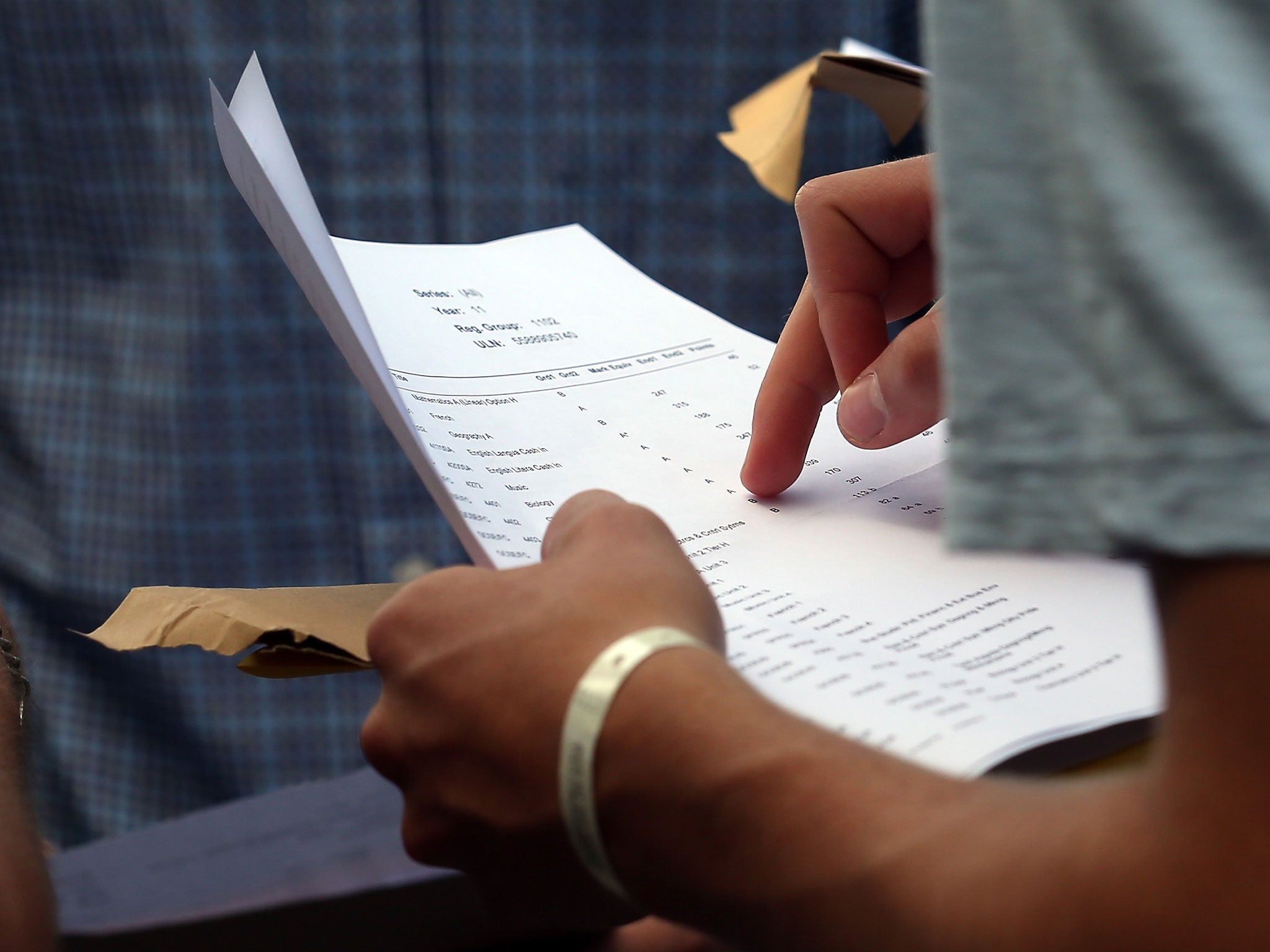A-level results day 2014: Top grade passes fall for third year in a row
Exam chiefs suggest that the drop in the top grade pass rate could be down to students switching to more traditional academic subjects

The number of top grade passes for A-level students has dropped for the third year in a row, results published today show.
Figures for the 300,000 candidates show the percentage of papers awarded A* or A grade passes fell by 0.3 percentage points to 26 per cent. Overall, the pass rate dropped from 98.1 per cent to 98 per cent while those awarded an A* to B grade pass fell by 0.5 percentage points to 52.4 per cent.
However, if A* grades are considered in isolation, the percentage of grades actually awarded went from from 7.6 per cent to 8.2 per cent.
Today's results are the first to be awarded which show the impact of former Education Secretary Michael Gove's exam reforms - which shift the focus from a modular approach to sudden death end of course exams.
Schools can no longer put their pupils in for January exams - in the knowledge they could retake modules in the summer if they needed to boost grades.
In a letter to schools today, exam board chiefs warned; “There is a potential for greater year on year changes in results, which is known as 'centre volativity'.”
However, they suggested that the drop in the top grade pass rate could be down to students switching to more traditional academic subjects - the so-called “facilitating subjects” like maths and science, which help students gain places at top selective universities.
The letter says; “it is quite probable that this (the drop) is due to students taking these subjects who in the past may have made other choices.
"If these students have found a particular facilitating subject more challenging than their peers, it may have depressed overall outcomes at grade A and also at grade B."
Figures show entries rising in biology, chemistry and physics by two per cent and by 0.9 per cent in maths.
Subscribe to Independent Premium to bookmark this article
Want to bookmark your favourite articles and stories to read or reference later? Start your Independent Premium subscription today.

Join our commenting forum
Join thought-provoking conversations, follow other Independent readers and see their replies